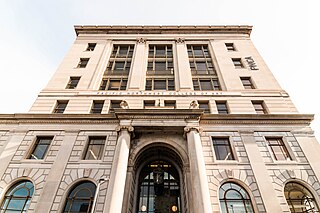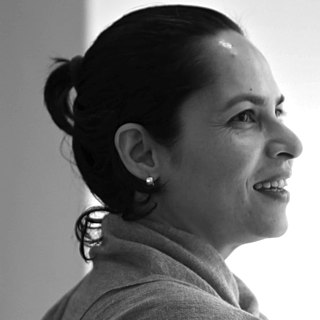
Transport in Pakistan is extensive and varied, and serves a population of over 212.2 million people. In recent years, new national highways have been built, with the addition of motorways which have improved trade and logistics within the country. Pakistan's rail network owned by Pakistan Railways is also undergoing expansion in recent years. Airports and seaports have been built with the addition of foreign and domestic funding.

Islamabad is the capital city of Pakistan. It is the country's ninth-most populous city, with a population of over 1.2 million people, and is federally administered by the Pakistani government as part of the Islamabad Capital Territory. Built as a planned city in the 1960s, it replaced Rawalpindi as Pakistan's national capital. The city is notable for its high standards of living, safety, cleanliness, and abundant greenery.
Shakir Ali (Urdu: شاکر على was an influential modern Pakistani artist and an art teacher. He was the principal of the National College of Arts in Lahore. He first joined Mayo School of Art as a lecturer in Art in 1954 and after changing the name of Mayo School to National College of Arts in 1958, he became its first Pakistani principal in 1962. Widely known to have inspired cubism among the artists of Lahore, he had a huge following of artists in Pakistan, most of whom were his students including Muhammad Ahmad Khan, Jamil Naqsh, Bashir Mirza, Ahmed Pervez and others.

The Pacific Northwest College of Art (PNCA) is an art school of Willamette University and is located in Portland, Oregon. Established in 1909, the art school grants Bachelor of Fine Arts degrees and graduate degrees including the Master of Fine Arts (MFA) and Master of Arts (MA) degrees. It has an enrollment of about 500 students. The college merged with Willamette University in 2021.
Jamal Shah is a Pakistani actor, director, musician, writer, sculptor, painter, and social activist.
Jamil Naqsh, was a British Pakistani painter who lived a reclusive life in London from 2012 until his death. He briefly studied at National College of Arts but left before obtaining a degree. His work has been described as idealized and sensual.
Laila Shahzada was a Pakistani abstract painter who lived and worked in Karachi, Pakistan.
Pakistan National Council of the Arts was set up to spearhead the development of arts in Pakistan by an Act of Parliament in 1973. It aims to build a robust arts ecosystem by creating an environment conducive to the flourishing of the arts, where the arts are accessible to everyone and artists and art groups have the commitment, financial support and resources, and to excel at home, and on the world stage. PNCA policies are framed by its Board of Governors which reports to the federal minister for National Heritage and Integration within the Ministry of Information.
Saeed Akhtar is a Pakistani portrait painter. He has received the Sitara-e-Imtiaz Award from the President of Pakistan.
The Ministry of Information & BroadcastingWazarat-e- it-tila-aat o nashriyat is a Cabinet-level ministry of Government of Pakistan, responsible to release government information, media galleries, public domain and government unclassified non-scientific data to the public and international communities. The MoIB has jurisdiction for administrating the rules and regulations and laws relating to information, broadcasting and the press media in Pakistan.
Shahid Mahmood Nadeem is a Pakistani journalist, playwright, screenwriter, theater and television director, and a human rights activist.
Naeem Tahir is Pakistani theatre, film and television actor, scholar, public speaker, columnist, teacher and dramatist.
Ustad Bashir Ahmed, son of Barkat Ali Malik, was born in Lahore, Pakistan in 1954. He is a Pakistani painter, also known as Moughal Miniature Painter.

Muniba Mazari Baloch is a Pakistani activist, anchor artist, model, singer and motivational speaker. She became the National Ambassador for UN Women Pakistan after being shortlisted in the 100 Inspirational Women of 2015 by BBC. She also made it to the Forbes 30 under 30 list for 2016.

Nighat Chaudhry is born on 24 February, in Lahore, Pakistan and moved to London when she was one year old. She is a trained Sufi & Mystique Kathak classical dancer. She started her journey from London and has been active as a professional Kathak dancer for over three decades. She studied ballet and contemporary dance. She met Nahid Siddiqui at age of fourteen, regarded as one of the greatest Kathak dancers and trained under her guidance. Inspired to learn the classical forms of her own culture, she abandoned ballet and join to understand and absorb the nuances of the style. This required her to be closer to its origins and she moved back to Pakistan.

Ayessha Quraishi is a contemporary visual artist who lives and works in Karachi, Pakistan. Having received her initial art training from Karachi-based educator Nayyar Jamil, she has been working for over three decades on the development of her signature technique and visual language. Her practice often integrates various media including drawing, painting, sculpture, performance and digital photography. Quraishi is a prominent artist whose work has been widely shown, both locally and internationally. She participated in the international Istanbul Biennial in 2019. More recently in 2020, Koel Gallery presented Quraishi’s major mid-career retrospective Between Light in Karachi, featuring works spanning thirty-five years (1985-2020) of her prolific and ongoing career. Accompanying the mid-career retrospective, a comprehensive monograph was published in February 2020.
Rabia Zuberi, sometimes referred to in Pakistan as Queen Mother of Arts, was a Pakistani sculptor, painter, former chairperson of the Pakistan Arts Council, teacher and Pakistan's first woman sculptor. She produced most of her work after immigrating to Pakistan. Some of her drawings includes Duputta, Quest for Peace, and some sculptures titled Peace Message from the Progressive World and Peace Message were acquired by the National Art Gallery, Pakistan during an exhibition in 2003.
Amna Mawaz Khan is a Pakistani classical dancer of Bharatnatyam, theatre artist, feminist and political worker. She is founding member of Women Democratic Front.
Saira Peter MSc MA (Lon) is a British-Pakistani soprano officially recognised as the world's first Sufi Opera singer. She is Director of NJ Arts London, a multicultural performing arts centre opened in 1998 by Sir Cliff Richard OBE. She is also founder of Saira Arts Academy in Karachi.

Pakistani art has a long tradition and history. It consists of a variety of art forms, including painting, sculpture, calligraphy, pottery, and textile arts such as woven silk. Geographically, it is a part of Indian subcontinent art, including what is now Pakistan.









